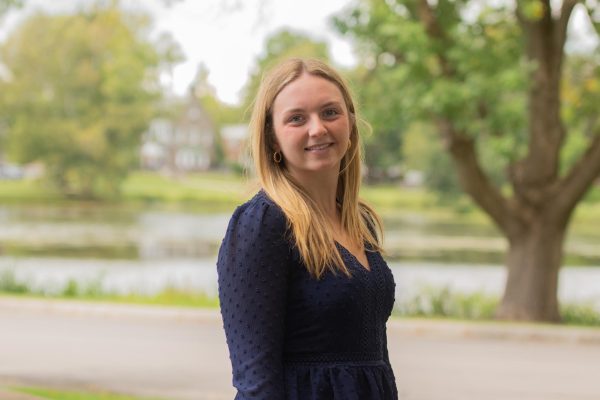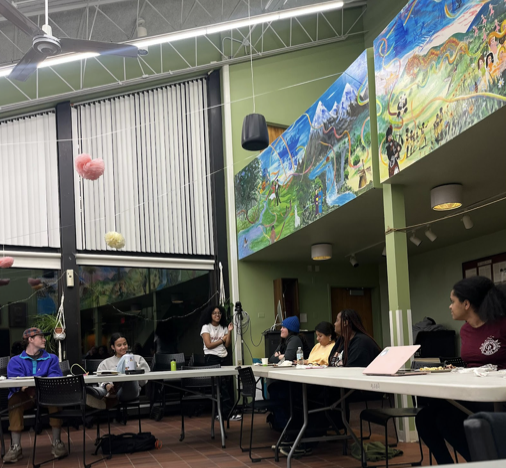ALANA Cultural Center Hosts Discussion on Black Queerness
As part of its series of conversations during Black History Month, the ALANA Cultural Center hosted an event focusing on the intersectionality of the Black and Queer communities on Wednesday, Feb. 15.
Sophomore Vianey Morris — co-president of the Black Student Union and a member of the University’s Queer Transgender People of Color (QTPOC) organization — led the discussion, which was titled “Black History Month: Black Queerness Conversation.” The close relationship between the Black Student Union and QTPOC groups means that there will be many more of these events to be held in the future, and this week’s turnout was promising for the popularity of future discussions, according to Morris, who hopes that these groups will continue to grow as a result.
“Some of my best friends are in [QTPOC], and they really help me accept who I am by being more accepting than I have been towards myself, and that means the world to me,” Morris said.
According to students who attended, this event — and others like it — are important to the Black Queer community at Colgate as they provide a space for both dialogue and shared experience that may not otherwise exist. Sophomore Aby Metellus said how important she felt it is for Colgate students to have these spaces for holding open conversations and raising awareness.
“I feel like bringing more of an awareness and representation to the forefront is what creates a more inclusive and diverse community, and it also shows how the Black Queer community has done so much work in not only pop culture, but in history, and the voices are just hidden or shunned or not even seen,” Metellus said.
Students also noted that the event provided an opportunity for members of the community to find a safe space to share their common experiences on campus.
“We’re trying to come up with a bunch of events that we can have for Black History Month that are inclusive of the entire Black community,” Morris said. “There’s a large diaspora but there’s also a lot of subcommunities: for example, the Queer community.”
Esther Rosbrook, director of the ALANA Cultural Center, said she hopes to create more events like these that are inclusive to everyone on campus.
“Black Queerness was about the intersectionality of identities. Celebrating intersecting identities ensures that no one is left behind in creating equality, awareness, meaningful justice and equality-focused experiences on our campus,” Rosbrook said. “Intersectionality is a framework for understanding how social identities — such as race, ethnicity, social class, sexual orientation and gender identity — overlap with one another and with systems of power that oppress and/or advantage people in our community.”
These systemic issues call for the very conversations that ALANA and Rosbrook hope to continue as they expand their outreach.
“More honest and collaborative dialogue like Black Queerness conversation must happen,” Rosbrook said. “Dialogue [about our identities] will bring people together and make us a stronger community.”
This event was just one of many hosted by ALANA Cultural Center and the Black Student Union to celebrate Black History Month. Past events included “Conversation and Viewing” on Feb. 1 and “Embracing ‘Us’ Dialogue” on Feb. 8.

Claire Dodds is a junior from Cresskill, NJ concentrating international relations with a minor in art history. She has previously served as a contributing...











